This article is written by Dilpreet Kaur Kharbanda. It is an effort to delve deep into the judgement passed by the Hon’ble Supreme Court in the case of Synthetics and Chemicals Ltd. vs. State of U.P. (1990), to understand the rationale behind it, analyse the case and be aware of the standing of the judgement in the present times. Furthermore, important doctrines like pith and substance and police power, which have been referred to in the case, are elaborated to understand their application.
Table of Contents
Introduction
Federalism is that form of government where the powers are segregated into different levels of government. There are three kinds of federal systems, holding together federation, coming together federation and asymmetrical federation. India falls under the first category, that is, holding together federation. In this kind of federation, though powers are shared between the centre and the states, powers are generally tilted more towards the central government.
India is often termed as Quasi-Federal, as there are elements of both union and federation. In Shamsher Singh vs. State of Punjab (1974), the Hon’ble Supreme Court held that “the parliamentary system of quasi-federalism was accepted rejecting the substance of the presidential style of executive. Dr. Ambedkar stated on the floor of the Constituent Assembly that the Constitution is, “both unitary as well as federal according to the requirement of time and circumstances.” He also further stated that the centre would work for the common good and for the general interest of the country as a whole while the states work for local interest”.
Alcohol is one such subject on which there has been a continuous tussle between the central and state governments. There have been numerous instances where the issue of whether the states have exclusive privilege over the manufacturing, importing, et cetera of alcohol or whether the states have complete power to regulate the sale of alcohol has reached courts and different opinions have been put forth. One such landmark judgement of the Supreme Court is Synthetics and Chemicals Ltd. & Ors. vs. State of Uttar Pradesh & Ors. (1990), which has been discussed further in the article.
Details of the case
- Case Name: Synthetics and Chemicals Ltd. & Ors. vs. State of Uttar Pradesh & Ors.
- Equivalent citations: 1990 AIR 1927, 189 SCR Supl. (1) 623, 1990 SCC (1) 109, JT 1989 (4) 267, 1989 SCALE (2) 1045.
- Court: Supreme Court of India
- Bench: Chief Justice E.S. Venkataramiah, Justice Sabyasachi Mukherjee, Justice Rangnath Misra, Justice G.L. Oza, Justice B.C. Ray, Justice K.N. Singh and Justice S. Natrajan
- Petitioners: Synthetics and Chemicals Ltd & Ors.
- Respondents: State of Uttar Pradesh & Ors.
- Date of judgement: 25.10.1989
- Legal provisions involved:
- Articles 19(1)(g), 21, 32, 47, 245, 265 and 277 of the Indian Constitution;
- Sections 24A and 24B of the Uttar Pradesh Excise Act, 1910;
- Section 18G of the Industries (Development and Regulation) Act, 1951;
- Section 49 of the Bombay Prohibition Act, 1949;
- Section 21 of the Andhra Pradesh Excise Act, 1968; and
- Sections 4 and 54 of the Tamil Nadu Prohibition Act, 1937.
Background of the case
The background of the present case can be understood by first of all understanding the judgement of State of Uttar Pradesh vs. Synthetics and Chemicals Ltd. (1980), from which the present case has emanated. The two-judge bench of the Supreme Court in the said case dealt with three main issues – firstly, the competence of the state to levy a vend fee on liquor; secondly, what does the word “liquor” include; and thirdly, whether the Amendment of 1972 made to the Uttar Pradesh Excise Act, 1910 was valid.
The decision has been summarised into the following points:
- The court determined that the vend fee that is charged by the state of Uttar Pradesh is for transferring the state’s exclusive right regarding intoxicating liquors to the licensees so that they can further legally be allowed to sell.
- The court held that the citizens of the country do not have a specific fundamental right to engage in the trade or business of liquor. The state can use its police power to uphold public morality and restrict the trade of harmful or hazardous goods.
- Taking Article 47 of the Indian Constitution into consideration, the state is competent enough to impose a complete prohibition on the manufacture or sale of intoxicating liquors. Even the history of excise laws in India indicates that the states have the exclusive right or privilege to manufacture and sell liquors.
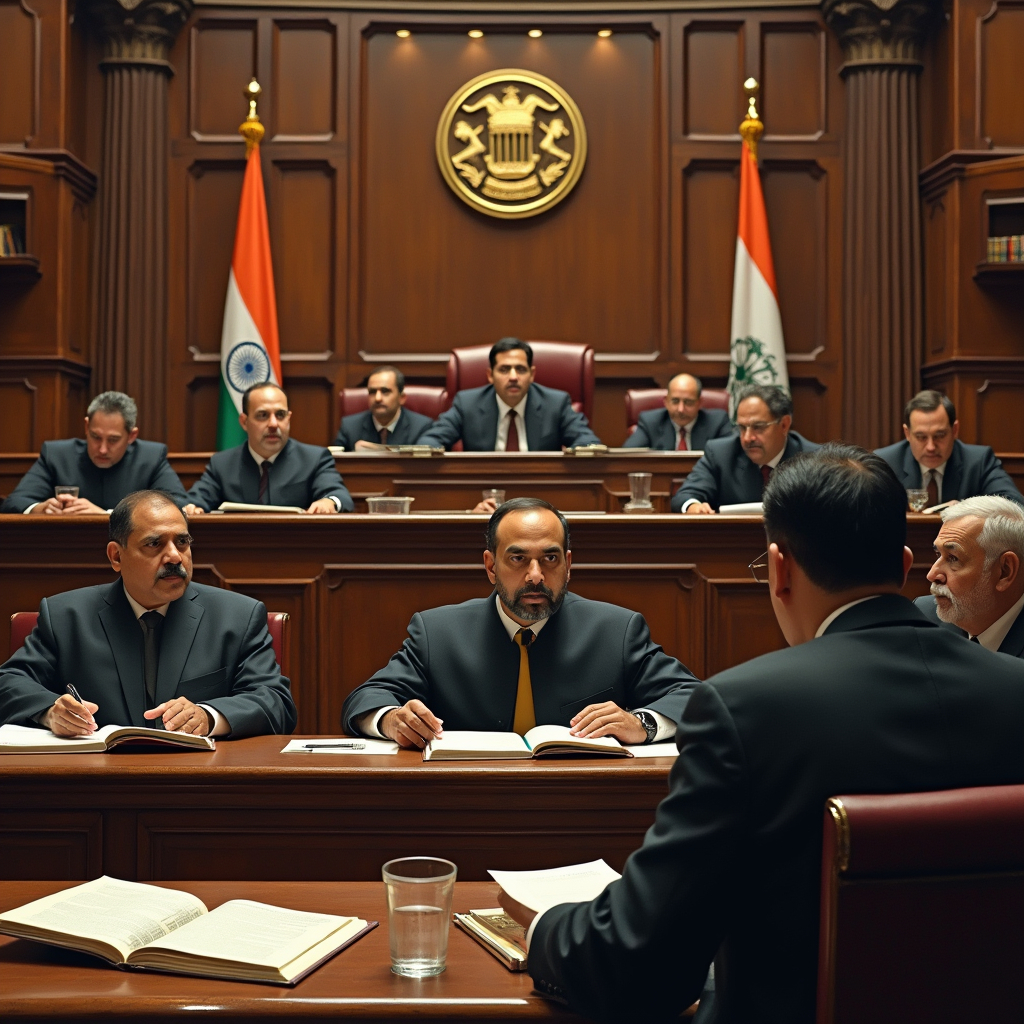
- Further, the court decided on what should be the definitions of certain specific words. The phrase “intoxicating liquor” encompasses more than just drinkable alcohol; it includes any liquids containing alcohol. The court referred to the decision of the Hon’ble Supreme Court in the case of State of Bombay & Anr. vs. F.N. Balsara (1951), which discussed the broader interpretation of “intoxicating liquor.”
- The same was supported by the definition of the term “liquor” given in the Abkari Acts where it is referred to as both alcoholic beverages and any liquid containing alcohol. The term “consumption” was also said to apply to any use of liquor, such as in manufacturing other products. The Hon’ble Court held that the state has the authority to define what constitutes country liquor or foreign liquor. “Foreign liquor” includes all rectified, perfumed, medicated, and denatured spirits, regardless of their origin.
“Alcohol” includes both ordinary and specially denatured spirits. The court considered that spirits are classified as specially denatured or ordinary denatured based on their intended use and the denaturants involved. The court rejected the argument of the petitioners that specially denatured spirit for industrial purposes differs fundamentally from ordinary denatured spirit.
- Further, it was held that the regulation of notified industries is not solely within the Parliament’s jurisdiction. Entry 33 in the Concurrent List (List III) of the Seventh Schedule allows laws to be enacted by both the states and the union regarding the production, supply, and distribution of products from these industries. Over and above that, the state’s exclusive authority to regulate the manufacture, distribution, sale, and possession of intoxicating liquors includes the ability to charge a fee for relinquishing its exclusive rights concerning these liquors. The Hon’ble Court relied on the judgement of Har Shankar & Ors. vs. The Dy. Excise & Taxation Commissioner & Ors. (1975) supporting the state’s regulatory authority over the sale and production of liquor and that the state has complete power to restrict anyone from dealing with the intoxicating liquors.
- Additionally, the Court upheld that the excise commissioner can accept payment for granting licences that provide the exclusive right to sell foreign liquor, including denatured spirits, either wholesale or retail.
Keeping this judgement of the court in mind, let’s delve into what happened in the case at hand.
Facts of Synthetics and Chemicals Ltd. Etc vs. State of Uttar Pradesh & Ors. (1990)
- In the present case, Writ Petition No. 182/80 was filed by M/s. Synthetics & Chemicals Ltd. and director of the company, Mr A.K. Roy, under Article 32 of the Indian Constitution.
- Power Alcohol Authority and Excise Commissioner of U.P. issued an order on 28th November 1952 for alcohol allotment to M/s Synthetics & Chemicals Ltd. Denatured alcohol supplied to them was exempted from the payment of vend fee; instead, an administrative charge of ₹7.50 per kilolitre was imposed. It was decided that alcohol has to be denatured with 5% ethyl ether or 0.2% crotonaldehyde at the distilleries.
- The government of Uttar Pradesh on 30th December 1960 issued a notification under Section 4(2) of the U.P. Excise Act, 1910. This notification included all “rectified, perfumed, medicated and denatured spirits wherever made” under the definition of “foreign liquor”. This notification was later embodied in Rule 12 of the U.P. Excise Rules, 1972.
- In May of 1963, M/s Synthetics & Chemicals Ltd. established a factory in Bareilly. Industrial alcohol is a basic raw material for manufacturing synthetic rubber. Thereafter, on 30th July 1963, the Government of U.P. issued a notification that excluded the alcohol issued to synthetic rubber manufacturing industries from the levy of vend fees. Subsequently, by the notification issued by the State of U.P. on 3rd November 1972, Rule 17(2) of the U.P. Excise Rules, 1972 was substituted, which imposed a vend fee of ₹1.10 per bulk litre on denatured spirit and left aside the industries engaged in manufacturing of synthetic rubber. The notification further excluded hospital supplies and exports from paying the vend fee.
- In December 1972, M/s Synthetics & Chemicals Ltd. faced a demand for the payment of the vend fee. This made them file a writ petition in Allahabad High Court challenging the notification dated November 3, 1972. Then, the Allahabad High Court struck down the notification and held that the vend fee could be justified neither as a tax fee nor excise duty.
- Thereafter, the U.P. Excise Amendment (Re-enactment and Validation) Act, 1976 was passed by the State of Uttar Pradesh and introduced Sections 24A and 24B in the U.P. Excise Act, 1910 with retrospective effect. Section 24A allowed the Excise Commissioner to grant licences for manufacturing and selling of foreign liquor at any place and Section 24B declared the State Government’s exclusive right to manufacture and sell both country and foreign liquor.
- Between 1976 and 1978, many of the wholesale dealers of denatured spirit filed petitions seeking a refund of the vend fee, basing their claims on the judgement of the Hon’ble Allahabad High Court. The learned single judge of the Allahabad High Court approved these petitions but the state appealed against the judgement and, resultantly, on 6th October 1978, the Division Bench of the High Court, taking into consideration Sections 24A and 24B of the U.P. Excise Act, 1910, upheld the state’s appeals.
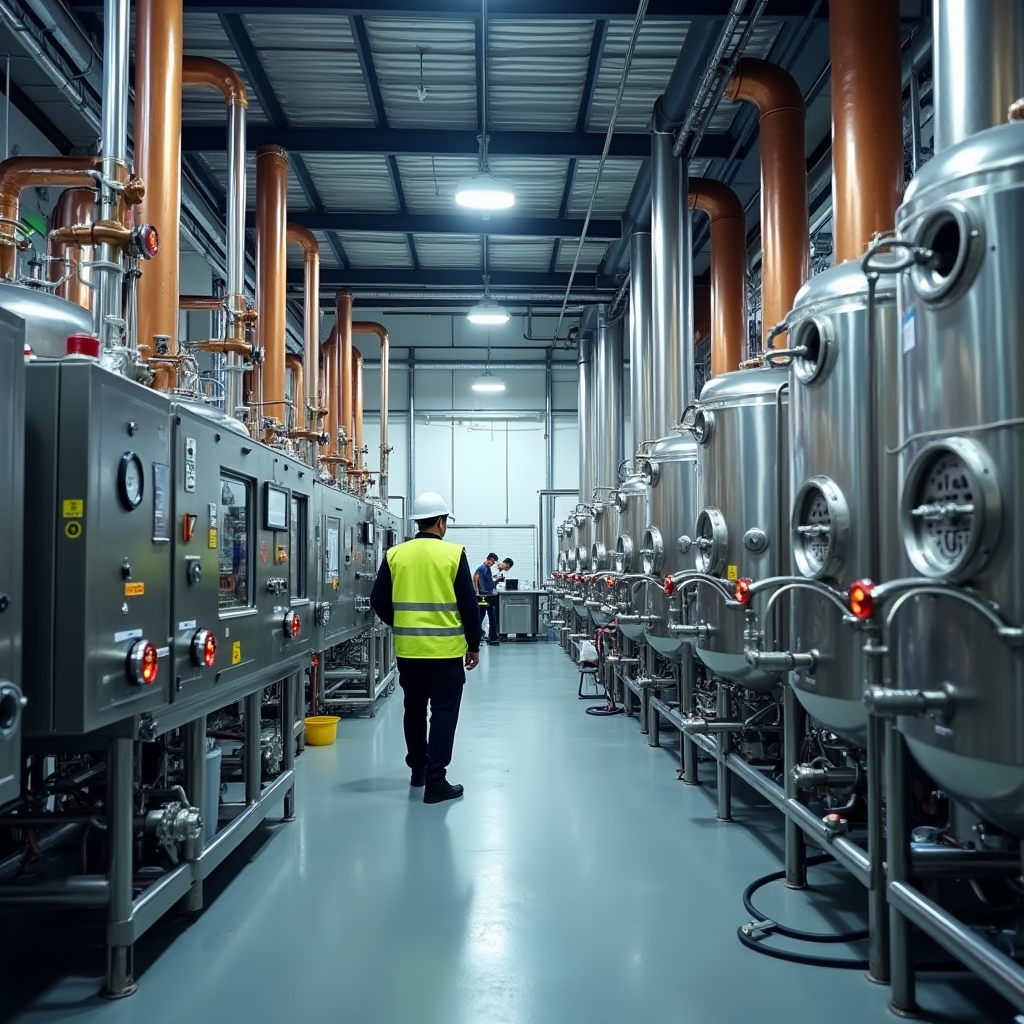
- The State Government issued the U.P. Licence for the Possession of Denatured Spirit and Special Denatured Spirit Rules, 1976. Under the rules, there was a requirement of a licence for the possession of denatured spirits for industrial purposes. These licences were categorised into three forms based on industrial use, namely, F.L. 39, F.L. 40, and F.L. 41.
- Form F.L. 39 was for industries where alcohol is destroyed or chemically converted into non-alcoholic products such as ether, acetone, polythene, etc.;
- Form F.L. 40 for industries using alcohol as a solvent or processing agent where the product does not contain alcohol, such as cellulose and pectin; and
- Form F.L. 41 for the industries using alcohol directly or as a solvent where it appears in the final product like vanishes, polishes, adhesives, etc.
- Through Ordinance No. 6 of 1973, the Government of U.P. amended the U.P. General Sales Tax Act, 1948. This amendment authorised a sales tax on alcohol up to ₹2 per litre, excluding denatured spirits and country liquor. Then, Ordinance No. 9 of 1974 was passed, which amended the definition of alcohol in U.P. Sales of Motor Spirit and Diesel Oil Taxation Act, 1939. The term ‘Alcohol’ included rectified spirit and absolute alcohol.
- Thereafter, a notification 484CE/XIII-330/79, dated 31st May 1979 was issued by the Government of U.P. which substituted Rule 17 of the U.P. Excise (Amendment) Rules, 1979. Apart from this, the levy of fee in the case of F.L. 39 licence was reduced to a combined vend fee and purchase tax of 25 paise per bulk per litre.
- Apart from this writ petition, there were eight different writ petitions, review petitions and civil appeals that were clubbed by the Hon’ble Supreme Court to be heard together.
- A review petition of Synthetics & Chemicals Ltd. vs. State of U.P. (202–04/80) and review petition of Kesar Sugar Works Ltd. vs. State of U.P. (17 of 1980) were filed against the judgement and order passed in the case of State of U.P. vs. Synthetics & Chemicals Ltd. (1980). The challenge was regarding the exclusive privilege given to the state government for manufacturing and sale of foreign liquor (denatured and industrial alcohol) under Sections 24A and 24B of the U.P. Excise Act, 1910, after the 1972 and 1976 amendments.
- Another writ petition that was heard together was All India Alcohol-based Industries Development Association vs. State of Maharashtra (Writ Petition 3163-64 of 1982), where the challenge was to the amendment made to Section 49 of the Bombay Prohibition Act, 1949, that provided an exclusive right or privilege to the state with regards to the liquor trade and transportation fees of ₹1.15 per bulk litre.
- The writ petitions, Chemicals & Plastics Ltd. vs. State of Tamil Nadu (Writ Petition 4501 of 1978) and Kolhapur Sugar Mills & Anr. vs. S.R. Hegde & Anr. (Writ Petition 2580 of 1982), challenged the Bombay Prohibition Act, 1949 and Ordinance No. 15 of 1981, which brought the amendment into the Act. Section 49 was added that bestowed the state with an exclusive privilege on importing, transportation, bottling, buying, exporting, manufacturing, selling, processing or using any intoxicant.
- Hindustan Polymer Ltd. vs. State of Andhra Pradesh (Writ Petition 1892 of 73), sought a declaration from the court with regard to the fact that the petitioner’s alcohol plant did not fall under the category of a distillery and was exempted from the application of Andhra Pradesh Excise Act, 1968, Andhra Pradesh Distillery Rules, 1970 and Andhra Pradesh Rectified Spirit Rules, 1971. Further, it was prayed that the state should be restrained from interfering in the process of manufacturing, production, movement, supply and distribution of the alcohol from the alcohol plant of the petitioner.
- Both Civil Appeals of 4384/84 and 466–67/1980 were also heard together and challenged the A.P. Excise Act, 1968, the A.P. Distillery Rules, 1970 and the Tamil Nadu Prohibition Act, 1937 respectively.
Issues raised in the case
Taking into consideration the challenges made by the petitioners in all the above-mentioned petitions filed and clubbed together into one, the Supreme Court narrowed down to the following issues:
- Is the power to levy excise duty on industrial alcohol with the state legislature or the central legislature?
- What is the scope of Entry 8 of List II of the Seventh Schedule of the Indian Constitution?
- Does the state government have an exclusive right or privilege of manufacturing, selling, distributing, etc. of alcohol, including industrial alcohol; and if so, what shall be the extent, scope and ambit of such right or privilege?
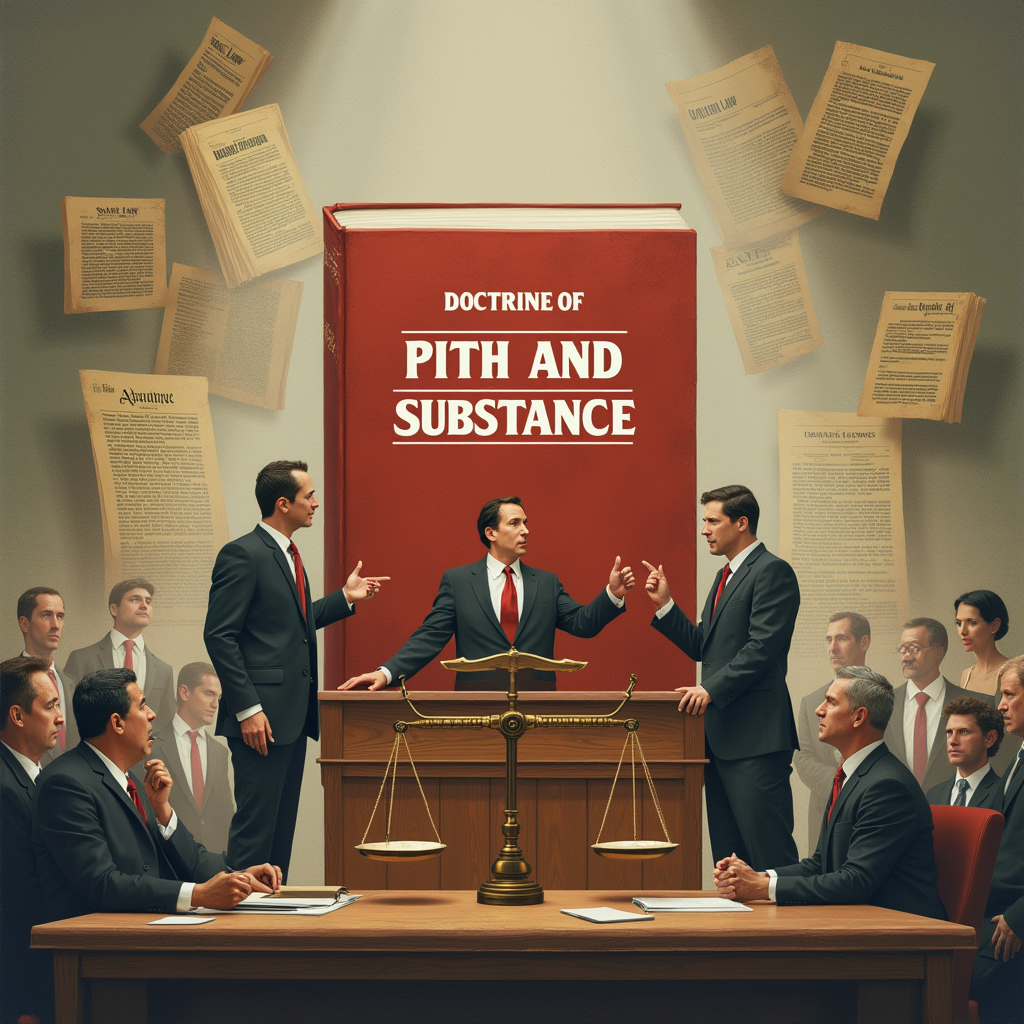
Arguments of the parties
Petitioners/Appellants
- It was argued by the petitioners and the appellants that the levy imposed by the states on alcohol is completely invalid and outside their legislative competence. Some of the petitioners used alcohol as a raw material in their industry, some of them even manufactured their own alcohol through distilleries and transported it via pipelines to their industrial units to use as a raw material; and others procured alcohol or denatured spirits through government allotments. It was contended that the state legislatures do not have the authority to impose such levies under Entry 84 of List I read with Entry 51 of List II, as the type of alcohol used by the petitioners and the appellant did not fall within the scope of alcoholic liquors for human consumption. Only the central government has the power to levy taxes under Entry 84 of List I.
- It was further contented that, as per Entry 8 of List II, the states only have a limited power over alcohol and that too for the purpose or regulation of alcohol in the state. Levying taxes on alcohol in no way falls under the ambit of regulating alcohol. Therefore, the levies imposed by the state legislatures on industrial alcohol and methylated spirits are unjustifiable and beyond the scope of regulatory purposes.
- It was argued by Synthetics and Chemicals Ltd. that only those duties could be levied by virtue of Section 143(2) of the Government of India Act, 1935, that were levied before 31st January 1935 and further that these would continue to apply until contrary provisions are made by the Federal Legislature. It was pointed out that the government of U.P. levied the vend fee as a duty for the first time by a notification dated 18th January 1937. Thus, such a levy by the state is invalid.
- With regard to the doctrine of privilege available with the state, it was contended that the privilege is limited only with respect to the alcohol meant for human consumption and does not extend to industrial liquor. It was further pointed out by the appellants that the states cannot simply broaden the definition of intoxicating liquor in their respective state excise laws and start imposing taxes. Furthermore, the need for uniformity in the industry was highlighted with regard to the imposition of taxes in the states. It was put forth that setting aside the arbitrary and excessive impositions would be of great help for the development of the industry as a whole.
- On the state’s argument that they can completely prohibit the manufacture and sale of alcohol for human consumption under Article 47 of the Indian Constitution, it was countered that, although it is a directive principle for the State under Article 47 to improve the standard of living of the general public, this should be achieved primarily through industrialisation, increased production and employment, with priority given to the core sectors.
- Furthermore, it was contented that Section 2 of the Industries (Development & Regulation) Act, 1951 directs that the union should take under its own control the industries that are using ethyl alcohol as an industrial raw material. Industrial alcohol is further utilised in manufacturing of downstream products.
- It was also argued by Synthetics & Chemicals Ltd. that they had never manufactured denatured spirits and had always been the purchasers of denatured spirits. The petitioners claimed that, in the case of State of U.P. vs. Synthetics & Chemicals Ltd. (1980), the court had proceeded on the assumption that the state’s privilege pertained to the manufacture or sale of foreign liquor or denatured spirit. Moreover, the fee charged was with respect to the licence for the possession of denatured spirits and was not a vend fee. On top of that, the Court had no where in the judgement held that purchasers were liable to pay the vend fee. Thus, it was contended by Synthetics and Chemicals Ltd. that a wrong view was taken by the court and, hence, they were not liable to pay the vend fee and the judgement should be reviewed.
Respondents
All the respondent states put forth their arguments on different points of discourse.
Union of India
The Advocate General representing the Central Government put forth the distinction between the powers of the centre and state with regard to regulation, taxation, and prohibition of various types of alcohol.
- It was argued that there is a different language used in Entry 8 and Entry 51 of List II of the Seventh Schedule and, thus, the interpretation of the term “intoxicating liquor” comes into the picture that includes both potable and non-potable liquors.
- Further, referring to the case of State of Bombay & Anr. vs. F.N. Balsara (1951), it was argued that it has been held by the Hon’ble Court that a state has the power to completely prohibit the manufacture and sale of potable liquor. At the same time, the Court, in the said case, struck down the provisions of the Bombay Prohibition Act, 1949, that imposed restrictions on medicinal and toilet preparations containing alcohol, as they were said to be violative of Article 19(1)(f), i.e., the right to property, (now omitted) of the Indian Constitution.
- Further, it was contended that trade in non-potable alcohol cannot be considered a noxious trade unless it is intended for human consumption.
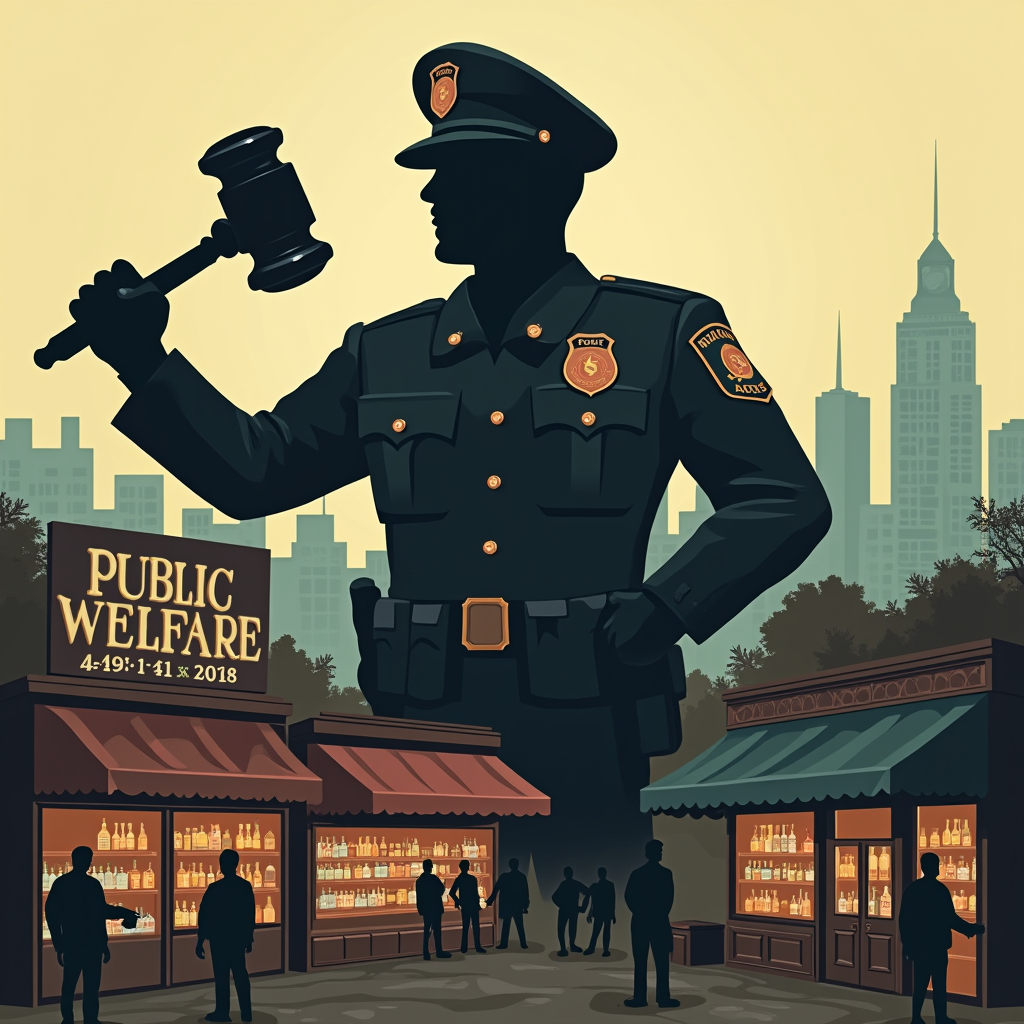
- The judgement of Indian Mica & Micanite Industries Ltd. vs. State of Bihar (1971) was referred, wherein the Court dealt with denatured spirit and held that the Bihar and Orissa Excise Act, 1915 regulating the trade and business in denatured spirit was not against public interest and further that Entry 8 of List II includes all liquors containing alcohol.
- Further, it was pointed out that the Parliament has the power to levy excise duty on power alcohol as per the Central Excises & Salt Act, 1944 (Schedule I, Item 6), and the Central Excise Tariff Act, 1985 (Tariff Item No. 22.04). Reference was also made to Article 277 of the Indian Constitution, which allows for the continuation of pre-constitution taxes, duties, cesses, or fees by the state, municipality, or local authority until the Parliament legislates otherwise.
- The Advocate General pointed out the exclusive powers of the Parliament and state legislatures. As per Entry 84 of List I, the Parliament can levy duties on goods including medicinal and toilet preparations containing alcohol, but not on alcoholic liquor for human consumption; whereas, states have the power to levy excise duty on alcoholic liquor for human consumption and certain narcotics produced within the state.
- While highlighting the powers of the state, Entry 52 and 56 of List II were mentioned, wherein the state can levy taxes on the entry of goods, including alcohol, into local areas and on goods carried by road or inland water, respectively. Further, the states can also levy taxes on the possession of alcoholic liquors fit for human consumption as luxuries. Furthermore, the states can levy fees concerning intoxicating liquors as per Entry 66, read with Entry 8 of List II. Whereas, parliament can declare control over industries in the public interest and thus, in a way, restrict the state’s legislative competence in certain areas (Entry 52 of List I).
- Additionally, it was argued that states can completely prohibit the manufacture and sale of alcohol for human consumption under Article 47 of the Indian Constitution, as there is no fundamental right to carry on business with such alcohol. Along with that, states can collect fees for granting the right to manufacture and sell alcoholic liquors for human consumption. But, at the same time, imposing prohibition on industrial alcohol or alcohol in medicinal/toilet preparations is not within the state’s power, as it would be in violation of Article 19(1)(g) of the Indian Constitution.
Thus, the whole argument revolved around the interpretation of the entries in the seventh schedule and that the states imposing fees like vend and shop fees for delegating or farming out their right to industrial alcohol is unconstitutional.
State of Uttar Pradesh
- The state argued that denaturants could be converted into renaturants illicitly and that yields high profits of around ₹25 to ₹30 from a bottle costing just ₹1.50. At the same time, they emphasised the social harm that is caused by alcohol, particularly to weaker sections of society.
- It was further argued that there is no dichotomy between ethyl alcohol for beverages and industrial use. It was claimed that the levy was on the manufacturing of ethyl alcohol and was covered under various constitutional entries like Entry 8 of List II, Entry 51 of List II and Entry 33 of List III.
- Further, it was argued that the vend fee was a pre-constitutional levy under the U.P. Excise Act, 1910 and continued under Article 277.
- It was justified by the state that the levy of fees is under the regulatory powers bestowed by Article 19(6) and that the state has monopoly in the alcohol trade and has immunity under Article 31C.
- It was further argued that the state incurs expenses for denaturing alcohol to prevent its misuse and it was claimed that the levy imposed by the state includes the cost of denaturants, processing, and regulation.
- An argument with respect to industrial alcohol and denatured spirit was made that they both fall under the definition of “alcoholic liquor for human consumption” and that the Parliament has no power to legislate on industry alcohol as Entry 84 in List I excludes alcoholic liquor for human consumption.
- Mr. Trivedi argued that Entry 52 of List I, which deals with the control of industries declared by Parliament to be under the control of the union, mentions the word ‘control’ and not ‘regulation’ and this indicates a narrower scope of the central legislation.
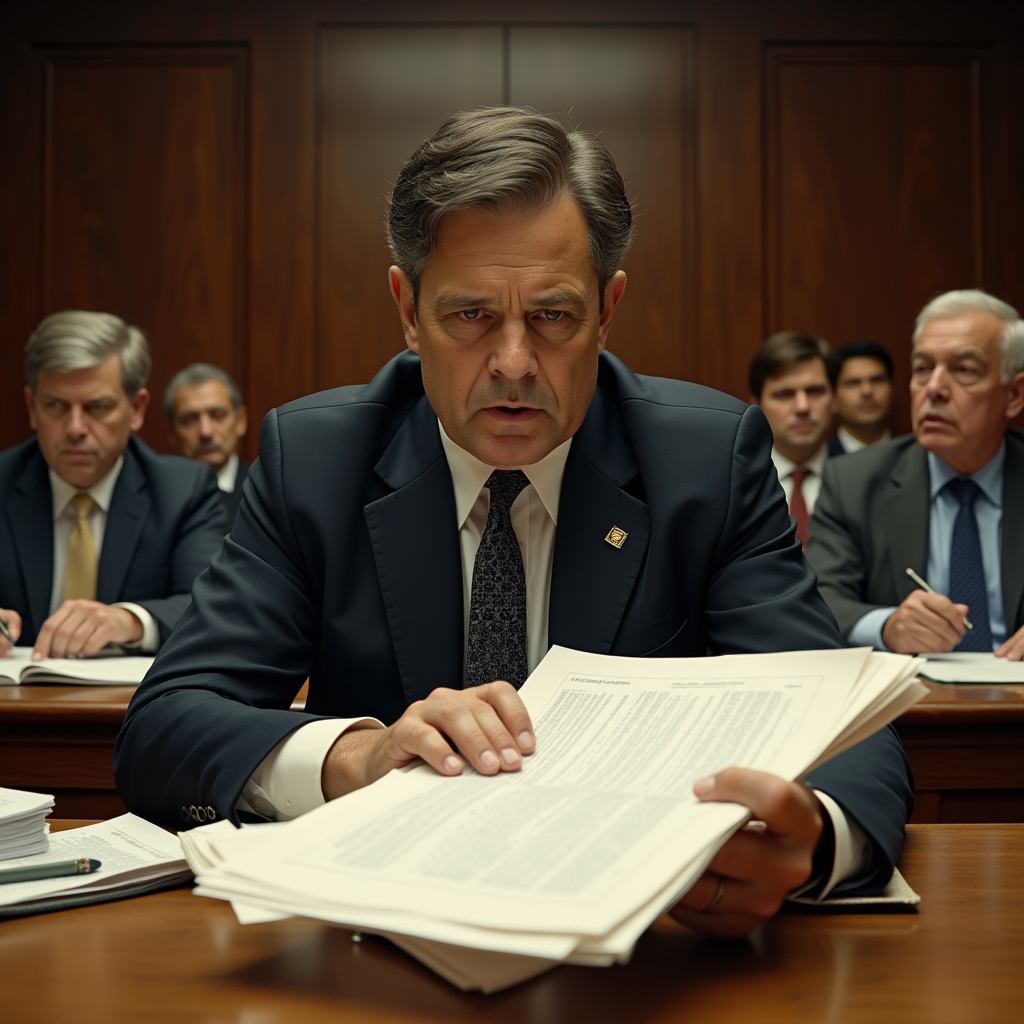
State of Maharashtra
- The state has the power to regulate activities, which includes imposing fees or charges as part of the regulatory framework. These fees or levies are legally acceptable as part of the state’s regulatory authority. It was argued that, by virtue of ‘police power’, impositions have been levied by states in the past as well.
- It was contended that there is a need to determine if the regulations under the Bombay Prohibition Act, 1951 aim to generate revenue or to promote prohibition and, for doing the same, the term “intoxicating liquor” should be interpreted broadly, encompassing all items containing alcohol. It was pointed out that the United States Supreme Court in the case of St. Louis Railway vs. Herbert S. Walters (1974) has also classified “denatured spirit” as intoxicating liquor to prevent misuse and a similar approach should be adopted in India as well.
- It was argued by Mr. Dholakia, the advocate for the State of Maharashtra, that the Industries (Development and Regulation) Act, 1951 was enacted by the Parliament and it is linked to Entry 52, List I, which allows the Union Legislature to control industries, but the states retain the power to permit or restrict industries under Entry 24 of List II. Furthermore, Article 47 of the Constitution enables the State to impose an absolute prohibition on intoxicating liquor, restricting the establishment of related industries.
- Favouring the need for regulation, it was argued that making alcohol more expensive is a valid method to regulate consumption. This approach is equally applicable to non-drinkable alcohol to prevent it from being cheaply accessible to potential bootleggers. Denaturing alcohol renders it unfit for consumption, but bootleggers might still process it and, thus, it is necessary that proper regulations are in place.
- Mr. Dholakia further argued that the Bombay Prohibition Act, 1951 cannot be challenged as its provisions impose prohibition; but, at the same time, assures reasonable availability of the denatures spirit and rectified spirit at reasonable prices.
State of Andhra Pradesh
- It was argued that the A.P. Excise Act, 1968 falls within the legislative competence of the Andhra Pradesh state legislature. This competence is derived from Entries 8 and 51 of List II and Entry 33 of List III of the seventh schedule of the Constitution.
- Furthermore, the levy of excise duty is valid as per Entry 51 of List II of the seventh schedule. Moreover, the Andhra Pradesh Act received the President’s assent and is a later enactment compared to the Industries (Development and Regulation) Act, 1951 and, as a result, the Andhra Pradesh Act would prevail over any earlier Central law as per Article 254 of the Indian Constitution.
- Moreover, there is no fundamental right to engage in the business of liquor. Rectified spirit can be diluted and made fit for human consumption by adding certain substances, though it can also be used for industrial purposes as raw material for other products. It was contended that the multifarious uses of alcohol do not change the essential character after distillation and, thus, can be taxed.
- Further, it was contended that the distinction between industrial alcohol and potable liquor based on Entry 84 of List I is not valid. The term ‘alcoholic liquor’ in Lists I and II of the seventh schedule should also include alcohol obtained in the fermentation process. At this stage, alcohol can potentially be made potable. The fact that alcohol can be rendered unfit for human consumption does not exempt it from taxation.
Thus, the arguments collectively aimed at establishing the legitimacy of the Andhra Pradesh Excise Act, 168 within the constitutional framework and emphasised that the State has the authority to tax and regulate alcohol, regardless of its potential uses.
State of Kerala
- It was argued that the State has police power and this power enables the state to impose regulations on manufacturing, transportation, possession, and sale of intoxicating liquor. Along with regulations, reasonable restrictions can also be imposed to put this power to use.
- The point was quite emphasised that regulation might be valid as a regulatory measure even if it does not fit neatly as a fee or tax. The Advocate General of Kerala referred to certain cases while justifying the state’s power to regulate liquor. The cases of Cooverjee B. Bharucha vs. The Excise Commissioner, Ajmer (1954), Har Shankar & Ors. etc. vs. The Dy. Excise & Taxation Commissioner & Ors. (1975) and P.N. Kaushal vs. Union of India (1979) were referred to where it was held that the states have police power over intoxicating liquor and by imposing higher fees on licences regulation can be enhanced.
- Further, the Supreme Court in the case of Southern Pharmaceuticals & Chemicals, Trichur v. State of Kerala (1982) was referred to where it was held that taking regulatory measures with regards to medicinal preparations containing alcohol can prevent their misuse.
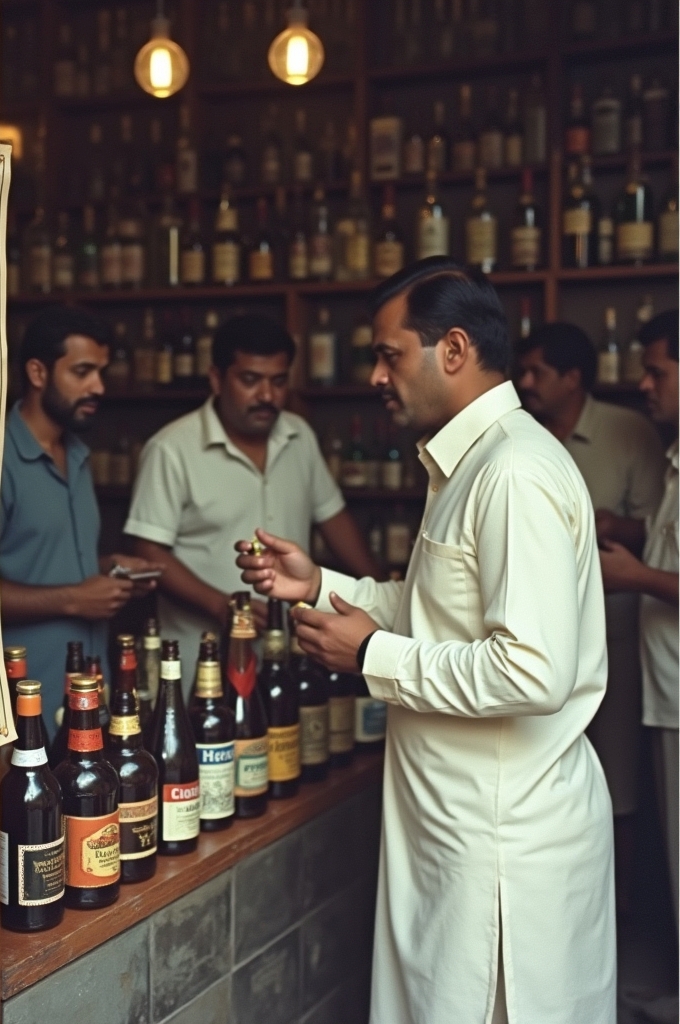
Concepts and laws involved in Synthetics and Chemicals Ltd. Etc vs. State of Uttar Pradesh & Ors. (1990)
Doctrine of pith and substance
The doctrine of pith and substance has been taken from the Canadian jurisprudence. When the powers between the centre and the states are divided and provided by the legislation, like in India by the Seventh Schedule of the Constitution, that is, when the doctrine of pith and substance comes into action.
The main motive behind the doctrine is to keep a check on the separate legislative powers of the centre and state and to make sure that no one trespasses over the powers and jurisdictions of the other.
The Constitution Bench of the Hon’ble Supreme Court in the case of A.S. Krishna vs. State of Madras (1957) held that the states and centre should never forget the federal structure of the Indian Constitution. The division of powers is amply clear in the seventh schedule but the chances of powers overlapping with each other is inevitable. The motive of the doctrine is to see whether the powers have been overstepped in framing an enactment. The court held that, even if a statute is in substance found to be related to a topic within the competence of the legislature, it would be in intra vires. The leniency was further elaborated that, even though legislation passed by the state is incidentally trenching upon the topics, it still would be intra vires and not ultra vires.
In the case of Kartar Singh vs. State of Punjab (1994), it was observed that, “the doctrine of pith and substance is applied when the legislative competence of a legislature with regard to a particular enactment is challenged with reference to the entries in the various lists i.e. a law dealing with the subject in one list is also touching on a subject in another list. In such a case, what has to be ascertained is the pith and substance of the enactment”.
In State of A.P. & Ors. vs. McDowell & Co. & Ors. (1996), it has been held by the Supreme Court that the three lists under the seventh schedule of the Indian Constitution are just the legislative heads and it is quite possible that these heads may overlap. In such situations of overlapping, the doctrine of pith and substance should be brought into action. When any legislation is deemed to be outside the competence of the state, the doctrine of pith and substance must be applied and it must be examined to see if the legislation framed by the state fits into any heads under the State List. If it falls under any of the heads of state list, then that would be considered to be intra vires and the ground of legislative incompetence would fail.
The Hon’ble Supreme Court, in the case of Zameer Ahmed Latifur Rehman Sheikh vs. State of Maharashtra (2010), observed that applying the doctrine of pith and substance is one of the proven methods to examine the legislative competence of a legislature with regard to an enactment. It was pointed out that it is essential for the courts to examine the true essence of the law passed, its scope and its impact, so that it can be seen if it is made within the jurisdictional walls set by the Constitution.
In the case at hand, the Hon’ble Court took into consideration the fact that, in addition to the power provided under Entry 8 of List II, states also have power under Entry 51 to impose excise duties on different commodities, including alcoholic liquors for human consumption; but, the general power to levy excise duties lies with the Central Government under Entry 84 of List I. The Hon’ble Court, while reviewing the taxes imposed on industrial alcohol titled as ‘vend fee’ or ‘transport fee’, applied the doctrine of pith and substance and held that the fees imposed were nothing different than the excise fees but in a disguised form. The Supreme Court, on the one hand, accepted the state’s power to regulate the use of alcohol but questioned whether imposing fees falls under the definition of regulation or not. The Court, while answering the question, held that the fees imposed by the states in the garb of regulation are invalid as they fall outside the ambit of the state’s jurisdiction. These (fees) seek to levy imposition in their pith and substance not as incidental or as mere disincentives but as attempts to raise revenue for the state’s purpose.
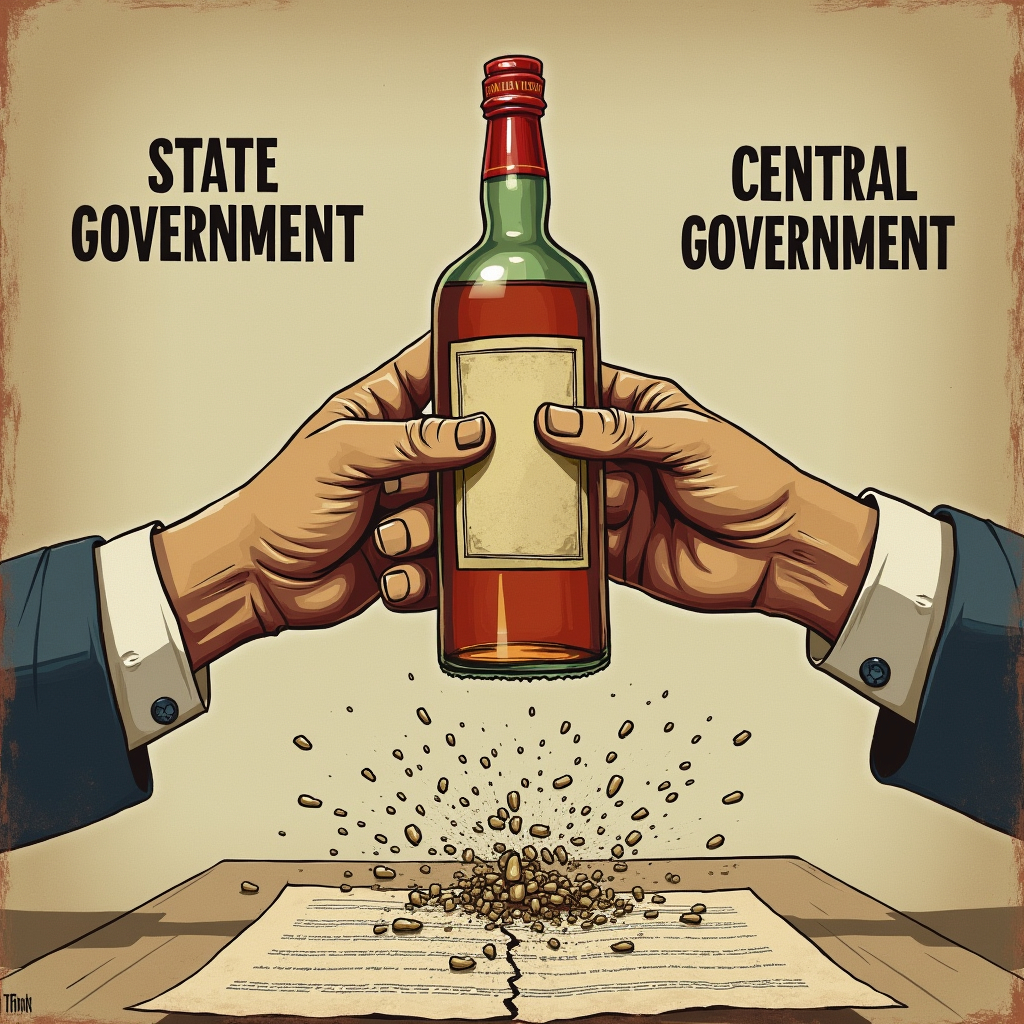
Concept of police power
The term ‘police power’ was coined by Chief Justice John Marshall in the case of Brown vs. Maryland (1827), where the U.S. Supreme Court held, “the power to direct the removal of gunpowder is a branch of the police power, which unquestionably remains and ought to remain with the states”.
The basic concept of police power is that the State has the power to take actions in the interest of the general public, their health, safety, morality and general welfare, and to do so, states can overstep their powers and restrictions can also be imposed to effectuate that power.
This doctrine is majorly applicable in the American legal system and does not have an application in India. The same has been put into clear words by the Supreme Court time and again. The Supreme Court in the case of Charanjit Lal Chowdhury vs. Union of India (1950) held, “the importing of expressions like ‘police power’, which is a term of variable and indefinite connotation in American law, can only make the task of interpretation more difficult”. Again, in the case of The State of West Bengal vs. Subodh Gopal Bose (1954), the Supreme Court held that the doctrine of police power is contrary to the set scheme and constitutional principles.
In the case at hand, the Supreme Court discussed the doctrine of police power and its application in India. The states tried to justify the levies imposed on alcohol and alcoholic liquors. But, the Hon’ble Court held that the police powers provided under the American Constitution are available in the form of Articles 19, 21 and 22 and their respective entries in the seventh schedule that differentiate the powers of the centre and state. The Court held, “under our Constitution no powers could be conceived for which there is no provision in any one of the entries in the three Lists or which could not be justified under any specific Article of the Constitution. Thus even this concept of the doctrine of police powers could not be of any help to justify the levies imposed by the State on alcohol or alcoholic liquors”. Furthermore, with regard to the powers of regulation of liquor in the state, the court observed that the power to regulate is not an emanation of police power but rather is an expression of the sovereign power of the state provided by the Constitution of India.
Article 47 of the Indian Constitution
As per Article 47 of the Indian Constitution, the State has a primary duty to:
- Increase the level of nutrition and standard of living of the people and
- Improve public health.
Additionally, the State should work towards prohibiting the consumption of intoxicating drinks and drugs that are injurious to health. However, an exception can be provided if they are used for medicinal purposes.
A question may arise as to why a complete ban is not imposed on liquor when a provision like Article 47 finds its place in the Indian constitution. The reason is that Article 47 is part of the directive principles of state policy and these directives are not enforceable in court. Moreover, there is a huge amount of revenue that is generated by governments through the excise duties levied on alcohol.
However, there are states like Gujarat, Bihar, Mizoram, Nagaland and the union territory of Lakshadweep that have imposed a total ban on the sale of liquor in their respective states.
In the Synthetics Case, the states argued that they have a privilege to manufacture and sell alcoholic beverages, but the same was rejected by the Supreme Court, stating that it contradicts the State’s duty to protect life under Article 21 and to improve public health and work towards prohibition under Article 47.
Interpretation of the constitutional provisions
The tools of interpretation come in handy when laws are ambiguous and their meaning is not completely clear on the bare reading of the statute. It would be logical to say that a set tool kit would not be enough to interpret all the statutes as interpretations differ with circumstances and particular facts of the case.
An observation was made by the Supreme Court in the case of Reserve Bank of India v. Peerless General Finance and Investment Co (1987), that a statute is best interpreted when we know the purpose why it was enacted and that interpretation is best when the textual interpretation matches the contextual.
In the case at hand, there has been a detailed discussion as to how the constitutional provisions must be interpreted. The Court observed the following:
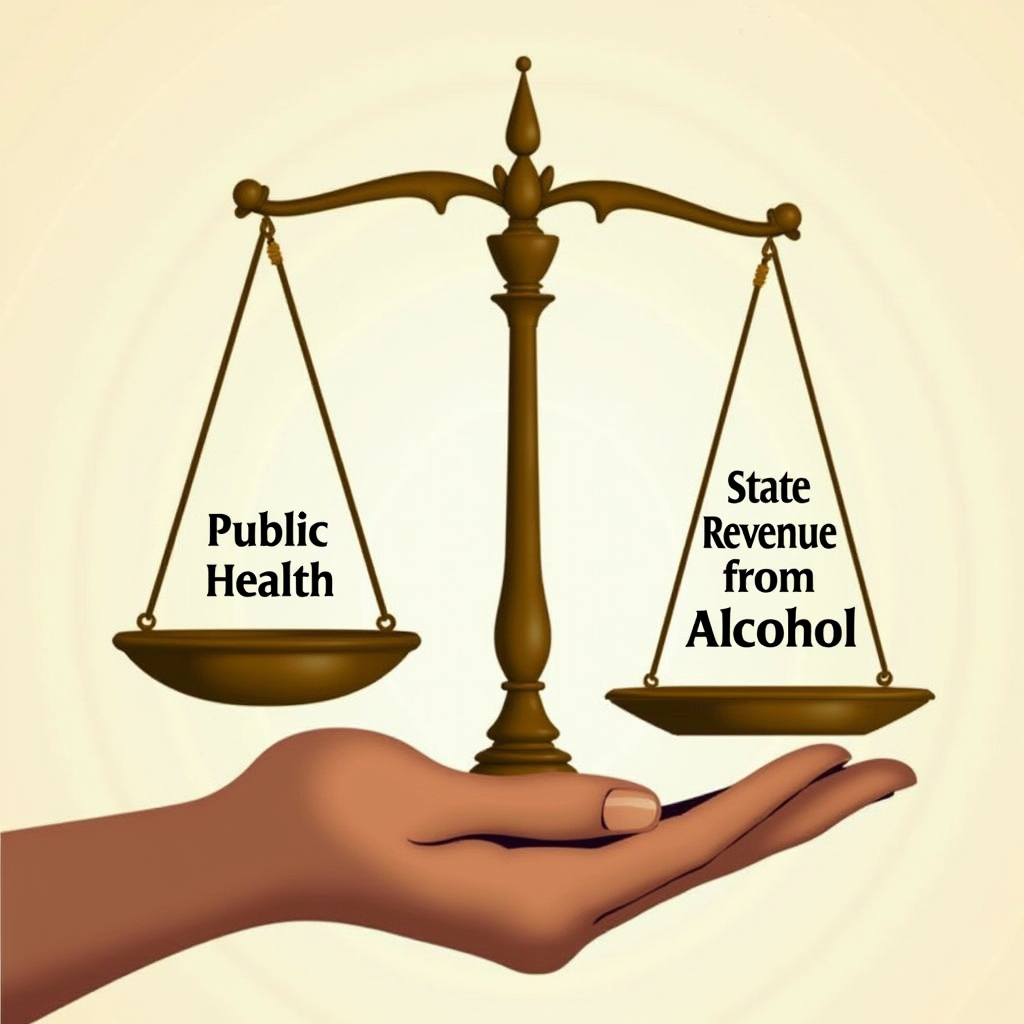
- To interpret the Constitution, one should apply the same principles used for ordinary laws but must also consider the unique nature and scope of the Constitution. Unlike ordinary statutes, the Constitution serves as the framework for lawmaking rather than merely stating the law. It is established that a Constitution must be interpreted broadly and not narrowly, aiming to maximise its scope and effectiveness.
- Exclusionary clauses should be strictly and narrowly interpreted, yet entries should not be read in a way that negates their entire content.
- A broad and liberal approach should guide constitutional interpretation, with courts refraining from distorting the language to fit any specific legal or constitutional theory. Instead, constitutional adjudication should strive to declare the law, recognising the Constitution as a dynamic and evolving document that adapts to changing circumstances.
- In federal systems, where power and jurisdiction are divided, the Constitution should be interpreted harmoniously. When determining if a particular enactment falls within the legislative purview of one body or another, the pith and substance of the legislation must be examined.
- The Court referred to the judgement of M.P.V. Sundararamier vs. State of A.P. (1958) where the principles of interpretation were laid down. The Supreme Court held that:
- The legislative entries must be interpreted liberally. When a topic falls under two entries, both entries should be reconciled, ensuring that both are liberally construed.
- The constitutional scheme of division of powers includes distinct entries for taxation and other laws. The taxes cannot be imposed under a general legislative entry, reflecting the need for specificity in taxation powers.
- The Constitution is an organic document, implying that it should be treated and interpreted as a living and adaptable framework.
- In case of conflict between entries, the primary principle is to reconcile them. However, union power prevails due to Article 246(1) and (3). The terms ‘notwithstanding’ and ‘subject to’ are crucial, as they establish the primacy of central legislative authority.
The legislative history of the division of powers between centre and states regarding industrial alcohol
Before deciding on the issues, the Hon’ble Supreme Court expanded on the legislative history of the demarcation of powers between the centre and states with regard to industrial alcohol. The legislative history discussed by the court can be understood through the following pointers:
- Indian Councils Act, 1861
- Applicable initially to Fort St. George and Bombay Presidencies.
- Later, it was extended to other provinces by Acts of 1892 and 1909.
- Section 43 of the Act imposed restrictions on the Governor-in-Council of both the presidencies for the purpose of making regulations with regard to the subject that affected the public debt or the customs duties or the taxes or duties levied by the Government of India, a prior sanction of the Governor-General had to be taken.
- Indian Councils Act, 1909
- Local legislatures were enacted under the Excise Acts with the assent of the Governor-General.
- Duties were imposed and the production, supply, and distribution of alcoholic liquors was regulated by the Act.
- United Provinces Excise Act, 1910
- Governor’s assent was received on 18th December 1909 and Governor-General’s assent on 14th February 1910.
- The Act included the application of duties on alcoholic liquors.
- Government of India Act, 1915
- The Act consolidated and amended all the earlier enactments.
- There was a devolution of rules where a distinction was drawn between the central and provincial subjects. Matters included in the list of provincial subjects in Part II of Schedule I of the Government of India Act, 1915, were to be excluded from central subjects.
- Part II specifically dealt with provincial subjects. Item 16 related to the excise matters. Excise was defined to include the control of production, manufacture, possession, transport, purchase, and sale of alcoholic liquor and intoxicating drugs. It also included the levying of excise duties and licence fees.
- The control of cultivation, manufacture, and sale for export of opium was excluded from the list, which meant that it remained under the control of the centre.
- U. P. Excise Act, 1910
- On 18th January 1937, a vending fee of 8 annas per bulk gallon was imposed on the denatured spirit by the Government of U.P. under Section 40(2) of the U.P. Excise Act, 1910.
- Rule 17(2) provided that vend fees would be payable in advance in case of issues from distilleries and exemptions were provided to hospitals and educational institutions.
- Government of India Act, 1935
- The Government of India Act came into effect on 1st April, 1937.
- The federal legislative list, Entry 45 provided the excise duty on tobacco and other goods manufactured or produced in India except alcoholic liquors for human consumption.
- Provincial Legislative List (List II):
- Entry 31 dealt with the production, manufacture, possession, transport, purchase and sale of intoxicating liquors, opium and narcotic drugs.
- Entry 40 provided the excise duties to be imposed on alcoholic liquors, opium, Indian hemp, and medicinal and toilet preparations containing alcohol.
- Duties levied by local legislatures before 31st January 1935 were continued under Section 143(2) of the said Act. Furthermore, only those duties were to be continued until contrary provisions were framed by the Federal Legislature.

- Indian Independence Act, 1947
- The British Parliament passed this Act on 15th August 1947.
- Two independent dominions (India and Pakistan) were established.
- As per Section 6(1) of the Act, the dominion legislatures were given full law-making powers to frame laws for the dominion, including laws that had an extra-jurisdictional operation.
- Under Section 8(2) & Section 9(1), the Governor General adopted the Government of India Act, 1935.
- Indian Power Alcohol Act, 1948
- This Act was passed by the Constituent Assembly acting as the Dominion Legislature on 3rd April 1948 and received the Governor General’s assent on the same day.
- Pursuant to the declaration by the Dominion legislature under Entry 34 of List I of the 7th Schedule to the Government of India Act, 1935, the Central Government took control of the power alcohol industry.
- “Power alcohol” was defined under the Act as ethyl alcohol containing not less than 95.5% by volume ethanol measured at 60° F, corresponding to 74.4 overproof strength.
- Constitution of India, 1950
- This came into effect from 26th January, 1950.
- The distribution of legislative powers with regard to alcohol was provided in the seventh schedule, which is given below:
- Entry 84 of List I: Duties of excise on tobacco but the alcoholic liquors for human consumption, opium, Indian hemp and other narcotic drugs are exempt. However, the excise duty is imposed on medicinal and toilet products that contain alcohol or any of these substances;
- Entry 51 of List II: State powers to legislate on excise duties on goods manufactured or produced in the State, including alcoholic liquors; and
- Entry 8 of List II: State powers to legislate on the production, manufacture, processing, transport, purchase, and sale of liquors.
- Industries (Development and Regulation) Act, 1951
- Enacted by Parliament on 8th May 1952.
- Section 18G of the Act gives the Central Government powers to ensure equitable distribution and fair prices of articles in scheduled industries.
- By the 1956 Amendment, Item 26 was added to the First Schedule of the Industries (Development and Regulation) Act, 1951.
- After the 1956 amendment, the Central Government took control over fermentation industries as per Item 26 of the First Schedule to the Act. The fermentation industries included alcohol industry and other products of the fermented industries.
Division of powers with respect to liquor under the Seventh Schedule of the Constitution
The Seventh Schedule in the Constitution of India demarcates the powers of the centre and state with respect to subjects that are divided into three lists, namely, the union List, the state list and the concurrent list.
The division of powers between the centre and the state specifically with regard to the liquor can be understood through the following entries in the three lists:
Entry 52 of List I
This entry provides that the control of industries by the union is declared by Parliament by law to be expedient in the public interest.
It means that, in the interest of the public at large, the Union Government can take control of an industry in pursuance to a declaration made by the Parliament or any law passed by the Parliament. The Parliament enacted the Industries Development and Regulation Act, 1951 and Section 18G of the Act provided that the Union Government can take control of the supply, distribution, price, etc. of industries that are mentioned in the first schedule of the Act as and when it seems necessary.
Entry 84 of List I
This entry states that the Parliament can make laws pertaining to the duties of excise on tobacco, and other goods manufactured or produced in India, except, inter alia, alcoholic liquor for human consumption, opium, Indian hemp and other narcotic drugs and narcotics, including medicinal, and toilet products that contain alcohol or any substances.
Entry 51 of List II
This entry empowers the state governments to make laws on the subject of excise duties on goods manufactured or produced in the State, including alcoholic liquors.
Reading together, Entry 84 of List I and Entry 51 of List II put forth that the alcoholic liquors that are meant for human consumption are put under Entry 51 of List II, which authorises the State Legislature to levy tax on them, whereas alcoholic liquors other than for human consumption are left to the Central Legislature under Entry 84 of List I for the levy of excise duty. What has been excluded in Entry 84 of List I has specifically been put within the authority of the State for the purpose of taxation.
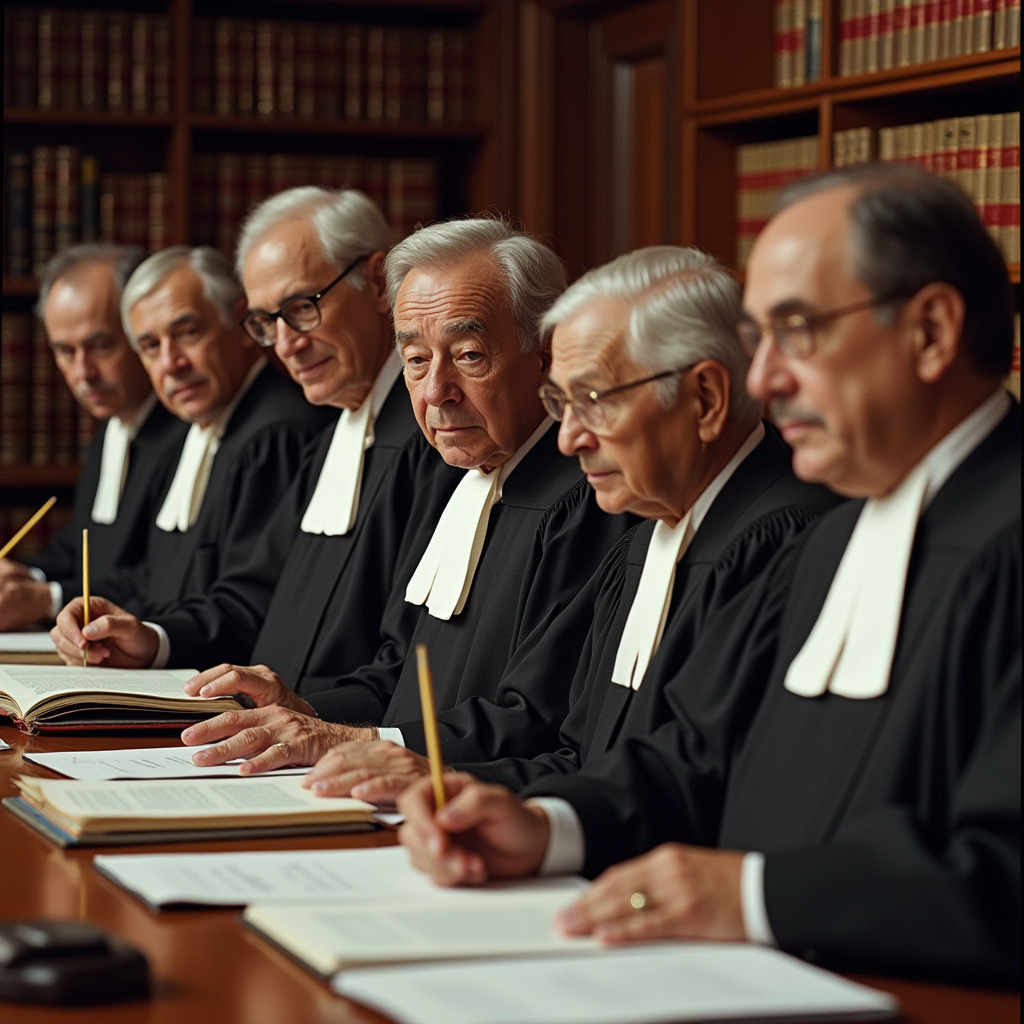
Entry 8 of List II
This Entry allows the state legislatures in India to regulate the production, manufacture, possession, transport, purchase and sale of intoxicating liquors by making laws.
What is important to notice here is the word ‘regulation’. The state has power in relation to the production, manufacture, possession, transport, purchase and sale of intoxicating liquors but only with the aspect of regulating them and nothing more than that.
Entry 33 of List III
This Entry provides that both union and state legislatures have powers to legislate upon the subject of trade and commerce, production, supply and distribution of products of any industry that has been declared by parliament to be of public interest.
Thus, the division of the powers between the centre and the state with regard to the liquor can be gauged from the above-mentioned entries. There is still an important decision pending on the interpretation of the specific terms used in the entries that would put the long-going tussle between the centre and the states to rest. The same is discussed in the later part of the article.
Judgement in Synthetics and Chemicals Ltd. Etc vs. State of Uttar Pradesh & Ors. (1990)
The judgement was authored by Justice Mukherjee and a concurring judgement was given by Justice Oza.
Majority opinion
- The states do not have the authority to impose taxes or levies on industrial alcohol and, hence, all such state-imposed levies and imposts on industrial alcohol, the state Acts are invalid but the levies on potable alcohol would remain unaffected.
- The Court declared the levies to be invalid prospectively. The Court explained that, while states are restrained from enforcing these levies in the future, they are not required to refund taxes that have already been collected and paid under these levies.
- The judgement specifically clarified that the invalidation of levies is with regard to only industrial alcohol; it does not affect any taxes or imposts on potable alcohol, which is commonly understood as alcohol meant for human consumption.
- The judgement does not affect the imposition of a levy on industrial alcohol if it can be established that there is a quid pro quo, meaning that the fee is justified by a corresponding service or benefit provided in return. Further, the regulatory measures on industrial alcohol are also not impacted.
- The decision of the Supreme Court in the case of State of U.P. vs. Synthetics & Chemicals Ltd. (1980) was overruled.
- It was held that, under the constitutional provisions and principles of interpretation, states cannot impose such taxes as they attempt to raise revenue, rather than merely regulate the industry.
- Furthermore, after the 1956 amendment to the Industries Development and Regulation Act, 1951, the control over alcohol industries, including industrial alcohol, was exclusively vested in the Union Government. The states cannot claim authority over manufacturing or production without permission from the central government.
- The states are left with residual powers like prohibition of potable liquor and regulation to prevent misuse of non-potable alcohol. However, they cannot impose sales tax on industrial alcohol due to the regulations imposed under the Ethyl Alcohol (Price Control) Orders.
Concurring opinion by Justice Oza
- The state legislature cannot levy taxes on alcohol not meant for human consumption; this is a power reserved for the Central Government.
- The State can regulate alcohol to prevent it from being used for human consumption, but any fees charged should only cover the cost of regulation and not generate any sort of revenue.
- Furthermore, the state cannot claim a privilege to trade in alcohol as it contradicts the state’s duty to protect life under Article 21 and to improve public health and work towards prohibition under Article 47.
- The concept of police powers, i.e., authority to regulate public welfare, from foreign courts does not apply in India. The Indian Constitution has clear provisions for powers between the state and the centre, and hence, there is no room left for any implied powers.
- Any power exercised by the state must be derived from a specific constitutional provision. Hence, the state cannot justify levies on alcohol under the doctrine of police powers if the same is not supported by the Constitution.
The rationale behind the judgement
Power to levy excise on industrial alcohol
The court, while deciding issue no. 1, as to whether the power to levy excise duty on industrial alcohol is with the state legislature or with the central legislature, pointed out that the Constitution itself differentiates between taxes on alcoholic liquors for human consumption and those not for human consumption. Entry 51 of List II gives the State the power to tax alcoholic liquors meant for human consumption, whereas Entry 8 of List II allows the state to regulate these substances but not impose tax. The Constitution nowhere gives the states the power to impose tax on industrial alcohol.
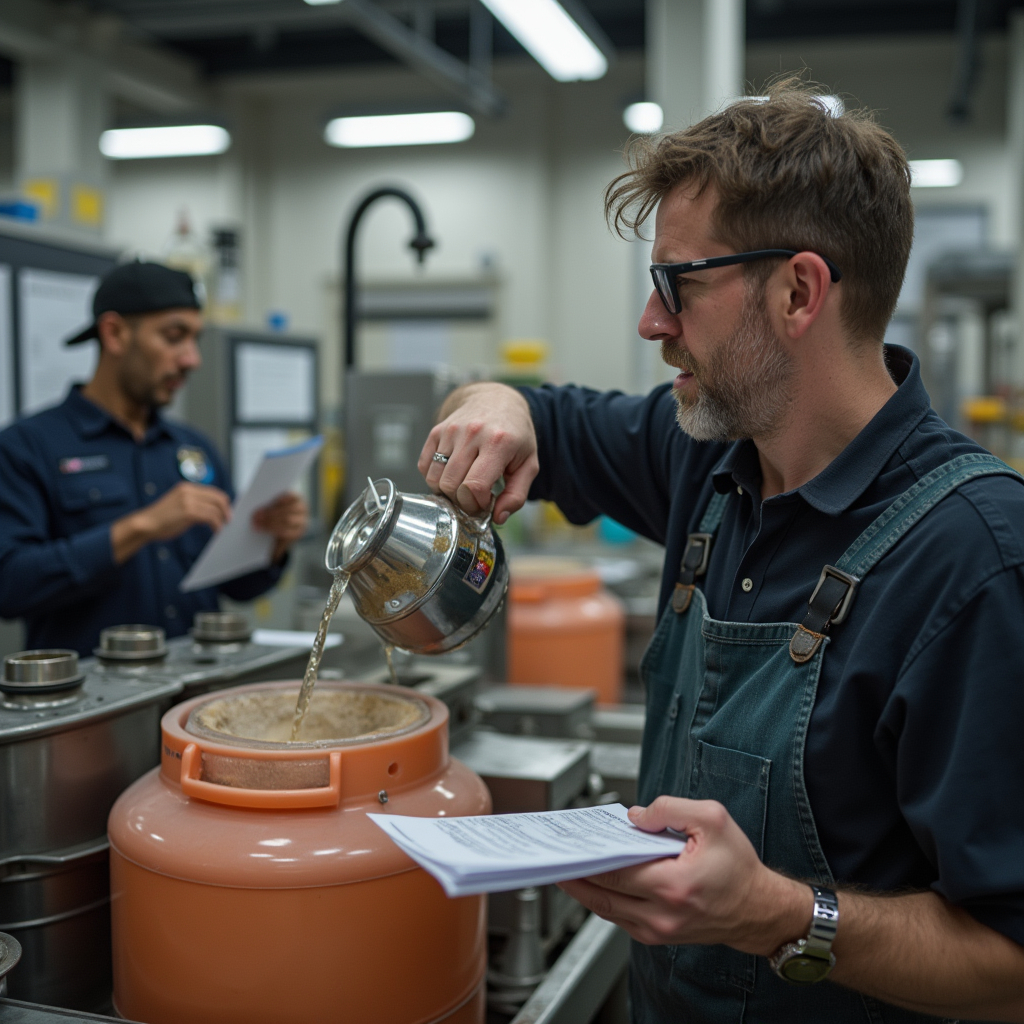
The Court further explained the amendment of 1956 to the Industries (Development and Regulation) Act, 1951 which vested the exclusive control of the alcohol industry in the hands of the Central Government. With the amendment of 1956, Item 26 was inserted in the First Schedule of the Act, which gave the authority to the Central Government to issue licences for the manufacture of both potable and non-potable. Consequently, the distilleries started operating under the licences issued by the Central Government under the Industries Act, 1951. The states were left with no exclusive right to manufacture industrial alcohol and, at the same time, had no right to pass a law to manufacture the same.
The Hon’ble Court went a step ahead and reasoned that the states cannot base their claim of imposing excise duty on industrial alcohol on either Entry 8 of List II or Entry 33 of List III. Regarding Entry 33 of List III, the State cannot regulate industrial alcohol as a product of the scheduled industry because the Union has shown clear intent to control this area exclusively through Section 18G of the Industries (Development and Regulation) Act, 1951. Additionally, Sections 24A and 24B of the U.P. Excise Act, 1910, do not regulate industrial alcohol as a product of the scheduled industry; instead, they address the transfer of privileges related to manufacturing and sale. The court, thus, held that the state cannot even levy an excise tax on industrial alcohol.
State government’s privilege of manufacturing, selling and distributing alcohol
The Court, while deciding issues 2 & 3, as to whether the state governments have a privilege of manufacturing, selling or distributing alcohol, including industrial alcohol, pointed out that because of the centralisation of powers, the state governments can no longer transfer the privilege of manufacturing alcohol to distilleries. States are not authorised to manufacture industrial alcohol without prior permission of the Central Government nor can they transfer a right they do not possess or claim an exclusive right to manufacture industrial alcohol produced under central licences.
Thus, the scope of Entry 8 of List II is limited only to the liquors meant for human consumption and does not include industrial alcohol within its ambit. And with regard to the exclusive privilege of the state in manufacturing, selling and distributing alcohol, this privilege is again limited to the alcohol meant for human consumption and all the rights with regard to industrial alcohol are to remain with the central government. To further simplify what actually are that the states hold on the subject, the courts provided the crux of the matter:
- States may legislate under Entry 60 of List II to prohibit potable liquor and regulate the same.
- States may regulate and keep in check that non-potable liquor is not misused and converted into potable liquor.
- States may charge excise duty on potable liquor and levy sales tax on the same under Entry 52 of List II. But, as per the Ethyl Alcohol (Price Control) Orders, sales tax cannot be charged on industrial alcohol.
- States may charge fees based on the principle of quid pro quo if any service is rendered by the state except the transfer of privilege.
Analysis of Synthetics and Chemicals Ltd. & Ors. vs. State of U.P. & Ors. (1990)
Taking into consideration all that has been discussed above, let’s analyse the judgement of Synthetics and Chemicals Ltd. vs. State of U.P. (1990) and what the current situation is with regard to the issues raised in the case at hand.
Before the Synthetics case, the case that the Hon’ble Supreme Court dealt with was Ch. Tika Ramji vs. State of U.P. (1956). This case stood the test of time for 34 years until the Synthetics case came in 1990. In the Tika Ramji case, the Supreme Court dealt with an issue revolving around sugarcane regulation in Uttar Pradesh. The issue was whether the regulation made in the state under Entry 33 of List III had an overcast over Entry 52 of List II. The court explained that:
- The production, supply, and distribution of goods fall under the exclusive domain of the state legislature but are subject to the provisions of Entry 33 of List III regarding trade, commerce, production, supply, and distribution of the products of industries controlled by the Union as declared by Parliament in the public interest.
- The controlled industries fall under Entry 52 of List I, which gives power to the Parliament to legislate, while other industries fall under Entry 24 of List II, exclusively managed by the State Legislature.
- The products of industries under Entry 24 of List II are managed by the State legislatures, and Entry 27 of List II gives the power to legislate on the production, supply, and distribution of goods, as defined in Article 366 (12), to include all raw materials, commodities, and articles.
- The Constitution (Third Amendment) Act, 1954, expanded the scope of Entry 33 of List III without affecting the legislative powers of Parliament and State Legislatures regarding these subjects.
- The production, supply, and distribution of sugarcane are solely within the State Legislature’s authority and do not in any way impinge on the union’s power to regulate sugar in the state, so the Act in issue is valid.
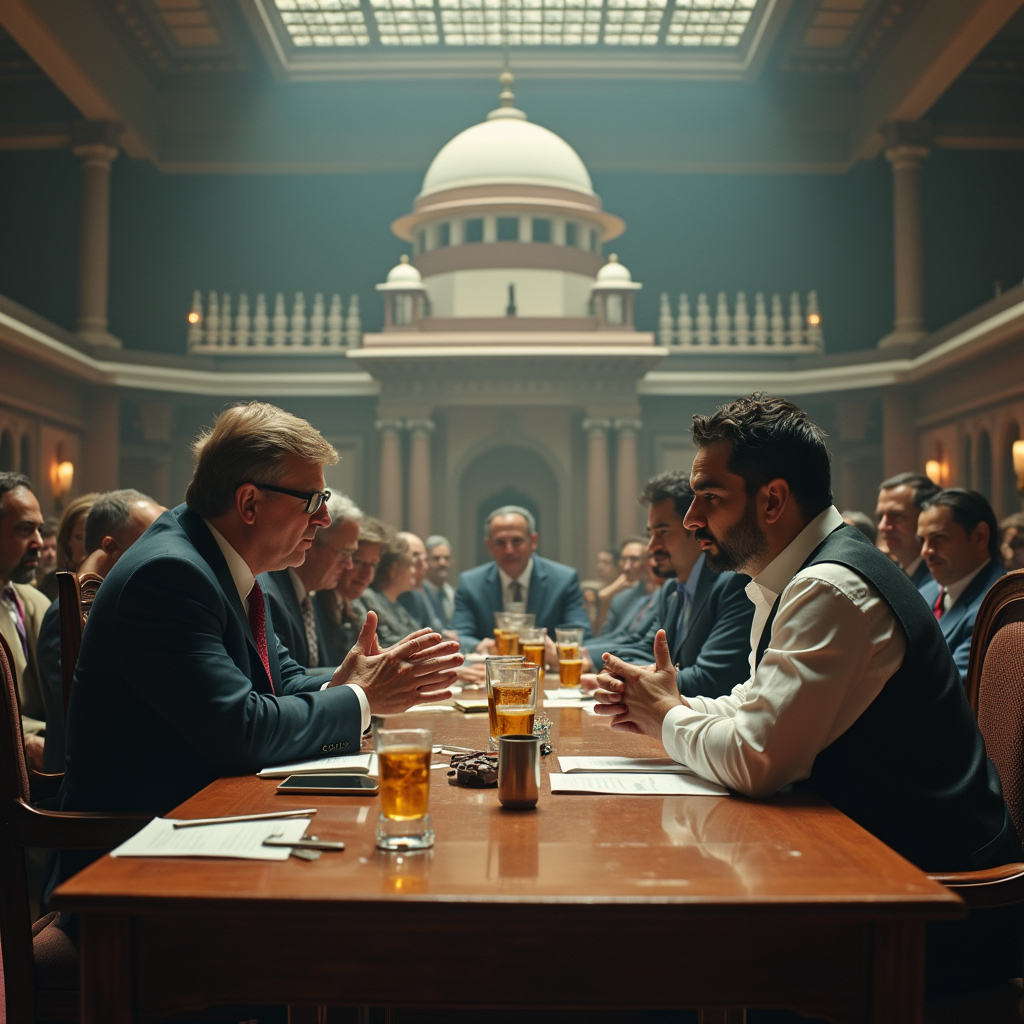
Then, came the case of Synthetics and Chemicals Ltd. vs. State of U.P. (1990), where the Supreme Court held that the states do have the power to regulate liquor but that regulatory power was limited to the extent of alcohol meant for human consumption. Going a step ahead, the Hon’ble Court held that the state can create provisions to regulate alcohol in the state to keep a check on whether the same is misused or illegally converted to potable liquor.
Another important point of discourse in the judgement at hand was the definition of the word “intoxicating liquor”. The case that needs reference here is the case of State of Bombay vs. F.N. Balsara (1951). The Supreme Court held that the term “intoxicating liquor” included all forms of liquids that contain alcohol, irrespective of whether they are suitable for consumption or not. But, this view was overruled by the Supreme Court in the Synthetics case.
Present conundrum
Earlier, a vend fee was imposed by the state, which led to the case of Synthetics and Chemicals Ltd. vs. State of U.P. (1990), but later, the State of U.P., started imposing a licence fee on denatured spirit obtained from the distilleries under the U.P. licences for the Possession of Denatured Spirit and Specially Denatured Spirit Rules, 1976. The same was challenged in various petitions filed before the Allahabad High Court. The Hon’ble High Court relied on the Synthetics case and held that the states did not have the requisite jurisdiction to legislate on industrial liquor, not meant for human consumption. Unsatisfied with the judgement of the Allahabad High Court, various appeals were filed before the Supreme Court. The Hon’ble Supreme Court dismissed all the appeals in the case of Vam Organic Chemicals Ltd. vs. State of Uttar Pradesh (1997).
Before the judgement of Vam Organic Chemicals Ltd. vs. State of U.P. (1997), there was a thread of judgements that dealt with similar issues. The Supreme Court, in the case of State of U.P. vs. Modi Distillery (1995), the Court relied on the Synthetics Case and held that the state can levy excise duty on alcoholic liquor but only that which is fit for human consumption. Another addition in this case was the use of the phrase ‘when the manufacturing process is complete’, not when it is in the form of raw material or input that is yet to be processed or being rendered fit for consumption. Then, came the case of Bihar Distillery vs. Union of India (1997). In this case, the Supreme Court did not fully rely on the Synthetics Case and ruled that the rectified spirits that can be used to produce or manufacture liquor for human consumption would also fall under the jurisdiction of the State Government and excise duty could also be imposed on them. However, this reasoning was held to be incorrect by the Supreme Court in the case of Deccan Sugar and Abkari Co. Ltd. v. Commissioner of Excise, A.P. (2004).
Again, in 1999, a licence fee was imposed on the sale of alcohol by wholesale vendors to licence holders in the State of U.P. under the U.P. licences for the Possession of Denatured Spirit and Specially Denatured Spirit Rules, 1976.
With regards to the Allahabad High Court judgement on licence fees, a Special Leave Petition was filed that was decided in the case of State of Uttar Pradesh vs. Vam Organic Chemicals Ltd. (2003). This time, the Hon’ble Court held that the position of an additional fee was valid and well within the competence of the State Government. The imposition of the fees would help to ensure that there is no illegal conversion of industrial alcohol into potable alcohol.
Against the 1999 notification of the imposition of the licence fee, a case was filed by Mr. R.P. Sharma, which was heard along with the case of State of U.P. vs. Lalta Prasad Vaish (2007). The Allahabad High Court took into consideration the Vam Organic judgement of 1997 and held that the licence fee imposed was illegal and outside the competence of the state government as states do not have jurisdiction to impose tax on industrial alcohol. The Allahabad High Court’s order was again challenged by way of a SLP before the Supreme Court.
The case is still to be decided by a bench of nine judges of the Supreme Court, but what is interesting to look forward to is whether the judgement in the case of Synthetics and Chemicals Ltd. vs. State of U.P. (1990) would be upheld by the court or the majority opinion would go back in favour of the case of State of Bombay vs. F.N. Balsara (1951) with regards to the definition of intoxicating liquor, whether the scope of the powers under Entry 33 of List III would be changed and whether industrial alcohol would make space under the ambit of Entry 8 of List II.
Relevant case laws
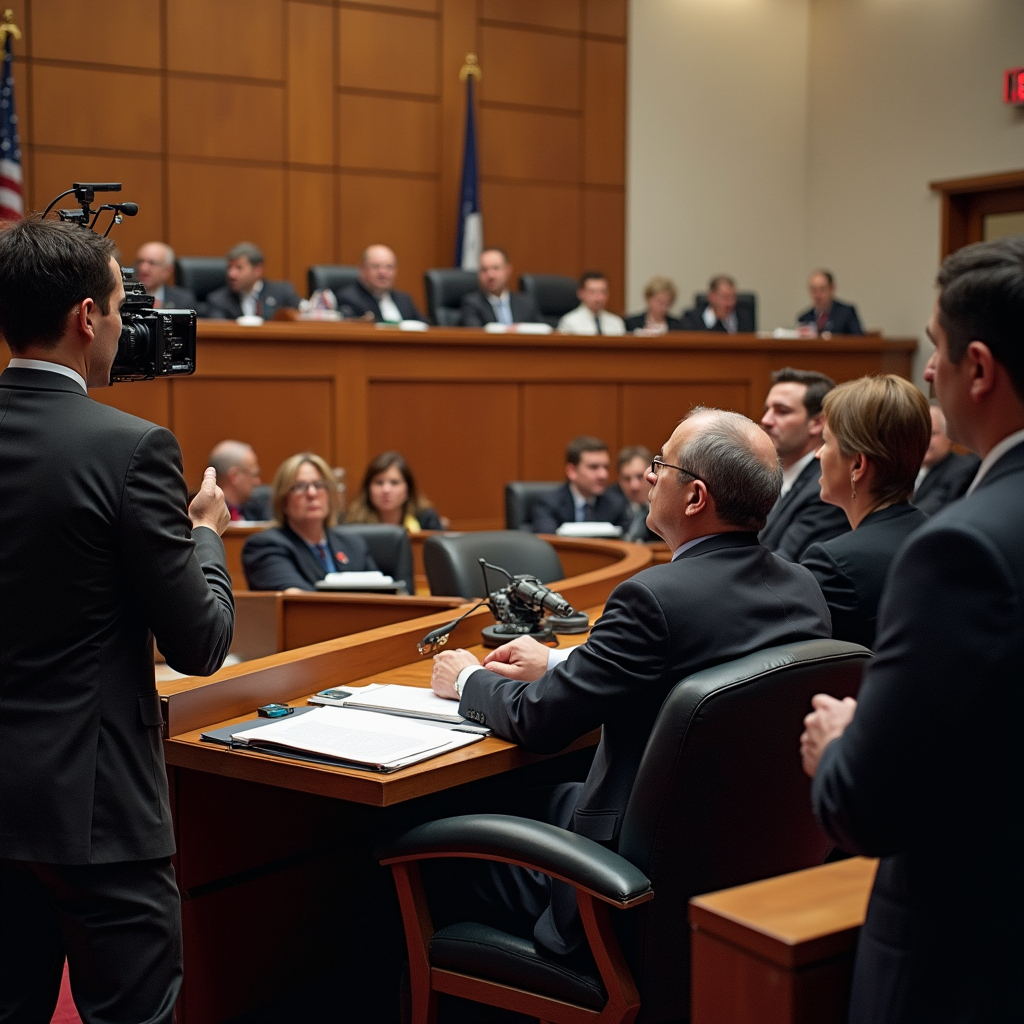
State of Bombay vs. F.N. Balsara (1951)
The Supreme Court’s decision in State of Bombay vs. F. N. Balsara (1951) put forth the broad interpretation of the phrase “intoxicating liquor”. It was held that it encompasses all alcohol-containing liquors and not just those meant for drinking. The court also clarified that the word “liquor”, as used in the Abkari Acts, includes not only alcoholic beverages but also any liquid containing alcohol.
The term “alcohol” was also defined by the Hon’ble Court to include both ordinary as well as specially denatured spirits. The court explained that the specially denatured spirit for industrial purposes is different from the denatured spirit because of the difference in the quantity and quality of the denaturants. Specially denatured spirits and ordinary denatured spirits are classified according to their use and denaturants.
The Court further elaborated that the regulation of industries involving notified products is not solely within Parliament’s jurisdiction because Entry 33 of the Concurrent List allows for the state legislatures as well to make laws concerning the production, supply, and distribution of the said products.
Further, the court acknowledged the states’ power to impose fees for relinquishing their exclusive rights over intoxicating liquors. It also determined that “foreign liquor” should not be narrowly defined to only mean beverages, it includes all types of rectified, perfumed, medicated, and denatured spirits, irrespective of their origin.
The Court pointed out that the term “consumption” extends beyond drinking to include any use of the liquor, such as in manufacturing other products. Consequently, it was observed that the state has the authority to classify what constitutes country liquor or foreign liquor.
Moreover, the Court dismissed the argument that the Excise Commissioner does not have the right to accept payment for granting licences for the exclusive privilege of selling foreign liquor, including denatured spirit.
Cooverjee B. Bharucha vs. Excise Commissioner and the Chief Commission, Ajmer (1954)
The Hon’ble Supreme Court, while dealing with the right to carry on business and trade under Article 19 of the Indian Constitution, observed that Clause (6) of Article 19 gives authority to impose reasonable restrictions on this right in the interests of the general public. The Court held that these restrictions differ from trade to trade and that no hard and fast rules can be imposed on all businesses. The petitioners did not deny the State’s power to prohibit trades which are illegal, immoral or injurious to the health and welfare of the public. The Hon’ble Court to justify its stance on the power of the states to regulate intoxicating liquor, referred to the case of Crowley vs. Christensen, (1890), where Justice Field held that the ill effects of liquor start to show first on the health of the person who is consuming it. But, thereafter, it affects the business that he runs, and the property he owns and slowly affects the people who are dependent on that person. Thus, there is a need to regulate the sale of liquor in the society. It was held that the regulations start from imposing a mandatory condition of getting a licence to sell liquor and then the regulations are strengthened by imposing restrictions on people who can buy, when they can buy, the hours and the days of week the shops can stay open and sell liquor.
The court observed that the state through its police power is fully competent to regulate the business of liquor, depending upon the outcomes they want to achieve. Justice Field held, “There is no inherent right in a citizen to thus sell intoxicating liquors by retail; it is not a privilege of a citizen of the State or of a citizen of the United States. As it is a business attended with danger to the community, it may be entirely prohibited or permitted under such conditions as will limit to the utmost its evils”.
Indian Mica and Micanite Industries Ltd. vs. State of Bihar & Ors. (1971)
Another case that was referred to was Indian Mica and Micanite Industries vs. State of Bihar (1971). In this case, the Court dealt with denatured spirit and held that the Bihar and Orissa Excise Act, 1915, was regulating trade and business of denatured spirit in the public interest. Further, the Court held that the state has the power to levy fees on denatured spirits. However, at the same time, before the fees are levied, there must be a quid pro quo situation between the government and the person on whom the fees are levied. There must be a service rendered by the government. There is no need for arithmetic exactitude but a basic correlation of general character must exist for the levy of fees to be valid.
The Court looking into the facts of the case held that the levy was excessive in nature in comparison to the service rendered as no material evidence was placed before the court to substantiate that the levy of fees was adequate.
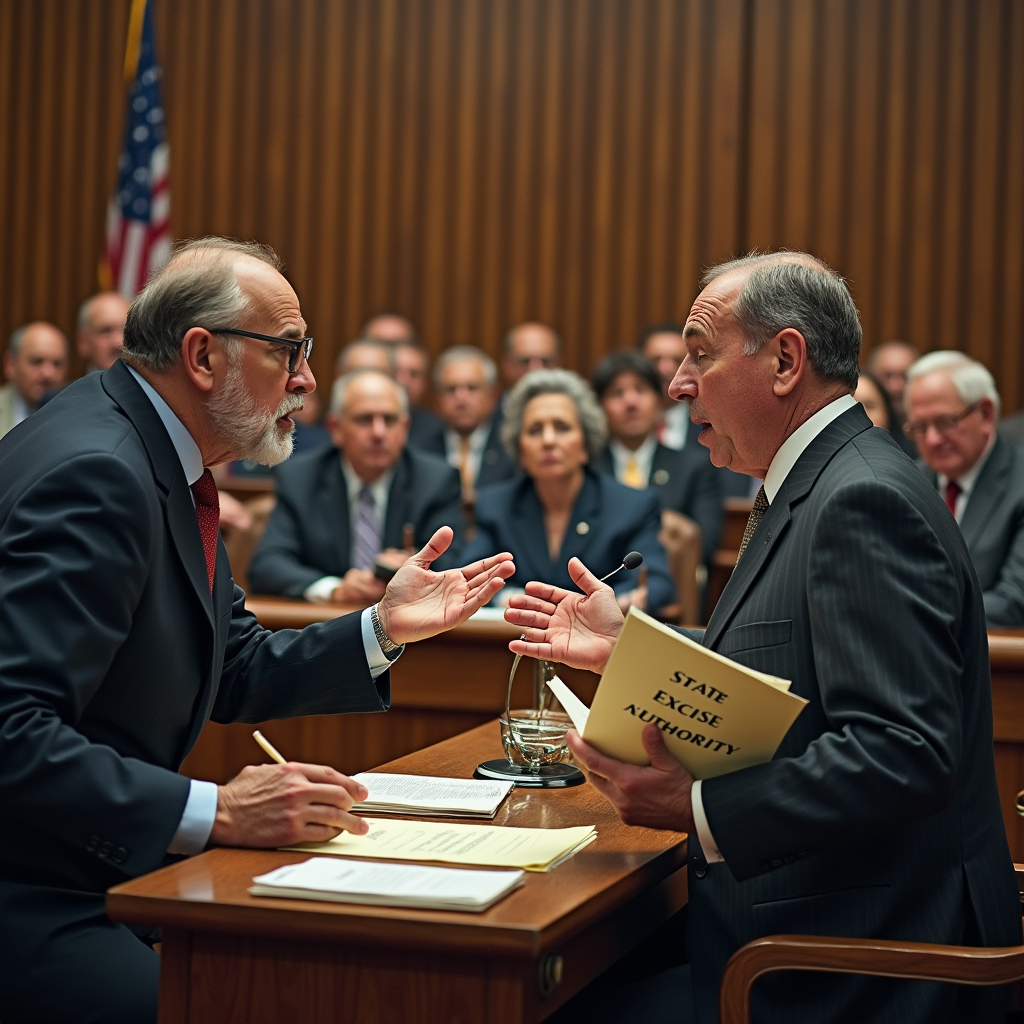
Har Shankar & Ors. vs. The Deputy Excise & Taxation Commissioner & Ors. (1975)
In this case, the Hon’ble Supreme Court held that the states under their regulatory powers have a complete right to prohibit absolutely every form of activity in relation to intoxicants expanding from manufacture, storage, export, import, sale and possession. Such rights of regulations are a must to keep in check the trade, supply and manufacturing of intoxicants in the states. Justice Chandrachud held, “The State has the power to prohibit trades which are injurious to the health and welfare of the public is inherent in the nature of liquor business, that no person has an absolute right to deal in liquor and that all forms of dealings in liquor have, from their inherent nature, been treated as a class by themselves by all civilised communities.”
P.N. Kaushal vs. Union of India (1979)
In this case, a writ petition was filed against the two-day ban imposed by the state of Punjab on the sale of liquor. The court held that the regulation of the number of days when the supply of liquor by licence is reasonable and within the power of the states to do so. Further, the court, while taking into consideration the expanse of restrictions imposed under Article 19 of the Indian Constitution, held that, depending on the situation of the matter, the restrictions can be pushed to the point of prohibition but with the essence of reasonableness intact. The Court even drew a similarity between the American doctrine of police power and the doctrine of reasonableness under Article 19 of the Constitution. The Court even held that there is a close similarity in the judicial thinking on the same.
Justice Iyer said, “What are we about? A raging rain of writ petitions by hundreds of merchants of intoxicants hit by a recently amended rule declaring a break of two ‘dry’ days in every ‘wet’ week for licensed liquor shops and other institutions of inebriation in the private sector, puts in issue the constitutionality of Section 59(f)(v) and Rule 37 of the Punjab Excise Act and Liquor Licence (Second Amendment) Rules, (hereinafter, for short, the Act and the Rules)”.
It was further observed by the court that it is ironic that when the states try to abide by their duty under Article 47 of the Indian Constitution by prohibiting intoxicating drinks, Articles 14 and 19 of the Constitution are pressed to thwart the state’s effort to prohibit the intoxicating drinks in the state. The court observed that sometimes to achieve the good, legal bad means have to be adopted. To put it in the words of Justice Iyer, “There is a mystique about legalese beyond the layman’s ken!”
Conclusion
Taking the judgement of the Supreme Court in the case of Synthetics and Chemicals Ltd. & Ors. vs. State of Uttar Pradesh & Ors. (1990) into consideration, the laws and concepts explained above in the article and the precedents set by the Hon’ble Courts, it can be concluded that the States do not have the power to levy excise duty on industrial alcohol as it comes within the jurisdiction of the Union Government. The states are not authorised to manufacture industrial alcohol without prior permission of the Central Government nor can they claim an exclusive right to manufacture industrial alcohol produced under central licences.
Furthermore, the states only have the power to regulate the production, manufacture, possession, transport, purchase and sale of intoxicating liquors as per Entry 8 of List II of the Seventh Schedule of the Indian Constitution and the term intoxicating liquor includes only the liquor meant for human consumption.
These interpretations made by the Hon’ble Supreme Court in the Synthetics case have stood the test of time for almost 34 years and, after all these years, the same provisions have again reached the Supreme Court for interpretation in the case of State of Uttar Pradesh vs. Lata Prasad Vaish (2007). This case is highly awaited as the verdict will clarify significant matters concerning the allocation of powers between the central and state governments in relation to industrial alcohol.
Frequently Asked Questions (FAQs)
Is Goods and Service Tax (GST) leviable on the supply of alcoholic liquor?
Article 366(12A) defines “goods and services tax” as any tax on the supply of goods, services or both, except taxes on the supply of alcoholic liquor for human consumption. Thus, GST is not levied on alcoholic liquor meant for human consumption. The same can be deduced from reference to Section 9 of the Central Goods and Service Tax Act, 2017 and Section 5 of the Integrated Goods and Service Tax Act, 2017.
Is there a fundamental right of a citizen to carry on trade or do a business of liquor?
No, there is no fundamental right available to the citizens of India to carry on trade or do a business of liquor or alcohol. The same has been held by the Supreme Court in the case of State of Tamil Nadu vs. K. Balu and Anr. (2016). The Court also held, “there is no fundamental right to carry on business in liquor since as a matter of Constitutional doctrine, Article 19 (1)(g) does not extend to trade in liquor which is consistently regarded as res extra commercium”.
References
- https://blog.ipleaders.in/doctrine-of-pith-and-substance/#State_of_Bombay_and_another_v_FN_Balsara_1951
- https://www.jstor.org/stable/43952176?read-now=1&seq=21
- https://www.internationaltaxreview.com/article/2a6ab6uyjg7ixq70ge1og/taxing-alcoholic-spirits-in-india-the-litmus-test-of-potability
- https://articles.manupatra.com/article-details/Constitutional-Interpretation-Viability-in-the-contemporary-world-and-a-brief-insight-in-its-approaches
- http://docs.manupatra.in/newsline/articles/upload/8de9e7de-8dda-48fe-9682-1c0f0b185af3.pdf
- https://www.scobserver.in/cases/state-of-uttar-pradesh-v-lalta-prasad-vaish-states-power-to-regulate-industrial-alcohol
 Serato DJ Crack 2025Serato DJ PRO Crack
Serato DJ Crack 2025Serato DJ PRO Crack


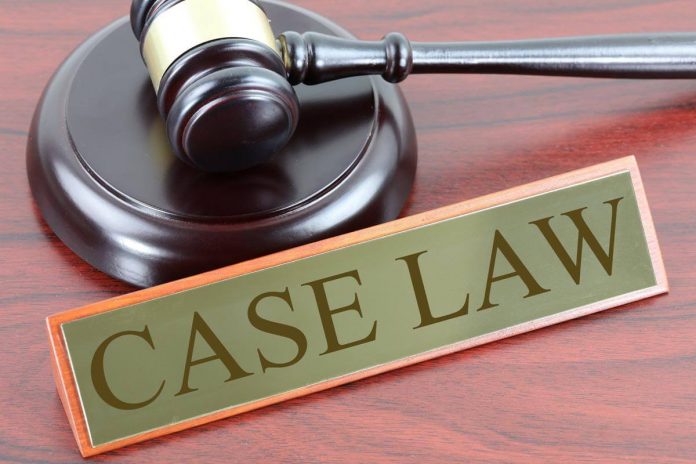






 Allow notifications
Allow notifications


